Environment
-
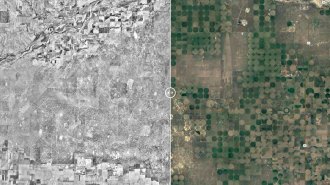 Environment
EnvironmentLandscape Explorer shows how much the American West has changed
The online tool stitches together historical images into a map that’s helping land managers make decisions about preservation and restoration.
-
 Animals
AnimalsThis bird hasn’t been seen in 38 years. Its song may help track it down
Using bioacoustics, South American scientists are eavesdropping on a forest in hopes of hearing the song of the long-missing purple-winged ground dove.
-
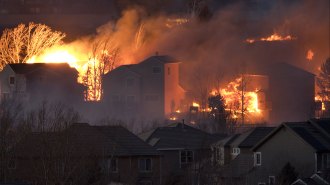 Environment
EnvironmentGrassland and shrubland fires destroy more U.S. homes than forest fires
Grassland and shrubland fires destroyed nearly 11,000 homes in the contiguous United States from 1990 to 2020.
By Nikk Ogasa -
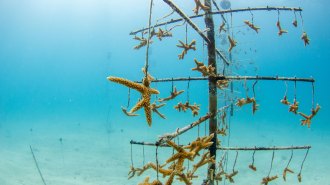 Animals
AnimalsFake fog, ‘re-skinning’ and ‘sea-weeding’ could help coral reefs survive
Coral reefs are in global peril, but scientists around the world are working hard to find ways to help them survive the Anthropocene.
-
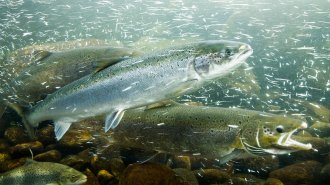 Animals
AnimalsPumping cold water into rivers could act as ‘air conditioning’ for fish
Hundreds of salmon, trout and other fish sought shelter from summer heat in human-made shelters, suggesting a way to help fish adapt to river warming.
By Nikk Ogasa -
 Climate
ClimateRóisín Commane sleuths out greenhouse gas leaks to fight climate change
From New York City to the Arctic, atmospheric chemist Róisín Commane tries to account for the greenhouse gases in the air.
By Jennifer Lu -
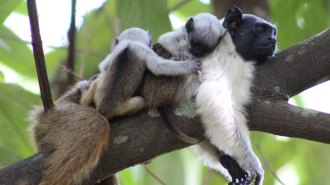 Animals
AnimalsIn noisy environs, pied tamarins are using smell more often to communicate
Groups of the primate, native to Brazil, complement vocalizations with scent-marking behavior to alert other tamarins to dangers in their urban home.
-
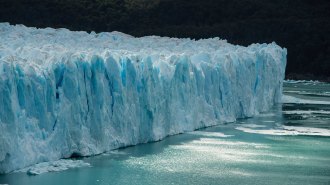 Climate
Climate‘Our Fragile Moment’ finds modern lessons in Earth’s history of climate
Michael Mann’s latest book, Our Fragile Moment, looks through Earth’s history to understand the current climate crisis.
-
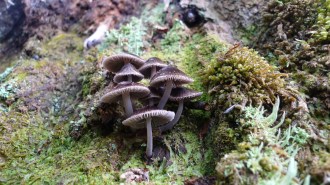 Earth
EarthWhen discussing flora and fauna, don’t forget ‘funga’
Conservation efforts often overlook fungi. That can change by using “mycologically inclusive language,” researchers say.
By Jude Coleman -
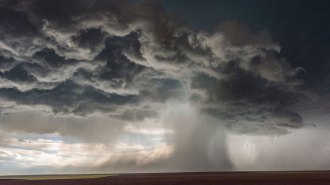 Earth
EarthHow thunderstorms can spawn damaging ‘downbursts’
Powerful winds called downbursts are not the same as a tornado, but the damage they cause can be similar — and can hit with little warning.
By Skyler Ware -
 Chemistry
ChemistryChemists turned plastic waste into tiny bars of soap
Researchers developed a process to turn plastic waste into surfactants, the key ingredients in dozens of products, including soap.
-
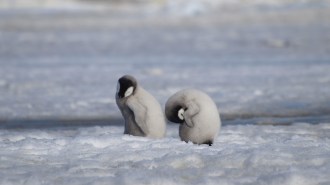 Climate
ClimateEmperor penguins lost thousands of chicks to melting ice last year
In 2022, groups of emperor penguins in western Antarctica lost almost all their chicks to receding sea ice, signaling the threat of climate change.